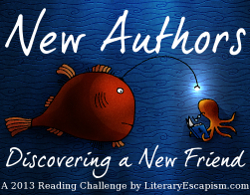Source: the poet
Paperback, 85 pgs.
I am Amazon Affiliate
Scale Model of a Country at Dawn by John Sibley Williams, winner of the 2020 Cider Press Review Book Award, is a collection that defies categorization. The opening poem, “The Gift,” establishes the poet’s framework for the collection, crafting a gift for the reader that will endure despite his loss and contain the harsh and beautiful moments of life. “Just a rough little box built from my bones/to keep the bones you’ll collect in.//” (pg. XIII)
Although there are more personal stories and imaginings within these poems, Williams is taking us (the reader) on a journey into the darker underbrush, the innate desire to seek out and understand the underbelly of humanity and life. “We all need something to scream into,” he says in “Ordinary Beasts.” This poem leads us to the build up of frustration and anger that can come with being part of society, family, and life in general. He further examines this darkness in humanity with “Like a plague of locusts,” in which it is clear that our presence and our actions have led to changes in the landscape: “This is not the sky/our grandmothers taught us to pray to;//this canvas of bald trees & splintered/schools not like anything//we can shape a childhood from./” (pg. 6)
Williams is building to something in this collection; he’s not espousing a particular philosophy or way of thinking. He’s merely building the framework that is humanity in all its emotions and faults. In the title poem, “Scale Model of a Country at Dawn,” he lays down what it means to be a father and raise a “man,” but the choice always remains with the son, just as it did with him as a boy. How do we take what has been taught and modeled for us and become our own person?
As It Is on Earth (pg. 26) It's like that sometimes. A man bends so completely he begins believing in his own holiness. An empty house kids are too scared to vandalize sees itself in time as haunted. Even the moon our dogs wail to each night as if in prayer fears a response is expected. The war my brother brought home & the home he pined for in war converge in an unruly absence. Is it finally fair to say like gods we make images to pour ourselves into? Like rivers, how they tend to move farther from the source? What skin remembers & the mind reimagines: between them a truth serrated as light.
Throughout Williams’ collection, there is a tension between what we desire and what is reality and between what we envision and what becomes. “Sinkholes” is a gem of a poem that illustrates this idea of ideals and memories versus reality and the uncontrollable. The “scale model” is the start of the country, but how we build it and repair it is the legacy. “Like the sky, roofs are meant to leak, bow./& replacing the buckets every night is a ritual//” (pg. 78, “Restoration”)
RATING: Cinquain
Other Reviews:
- Controlled Hallucinations
- Disinheritance
- As One Fire Consumes Another
- Skin Memory
- The Drowning House
About the Poet:










































 About the Poet:
About the Poet:




 About the Poet:
About the Poet:




